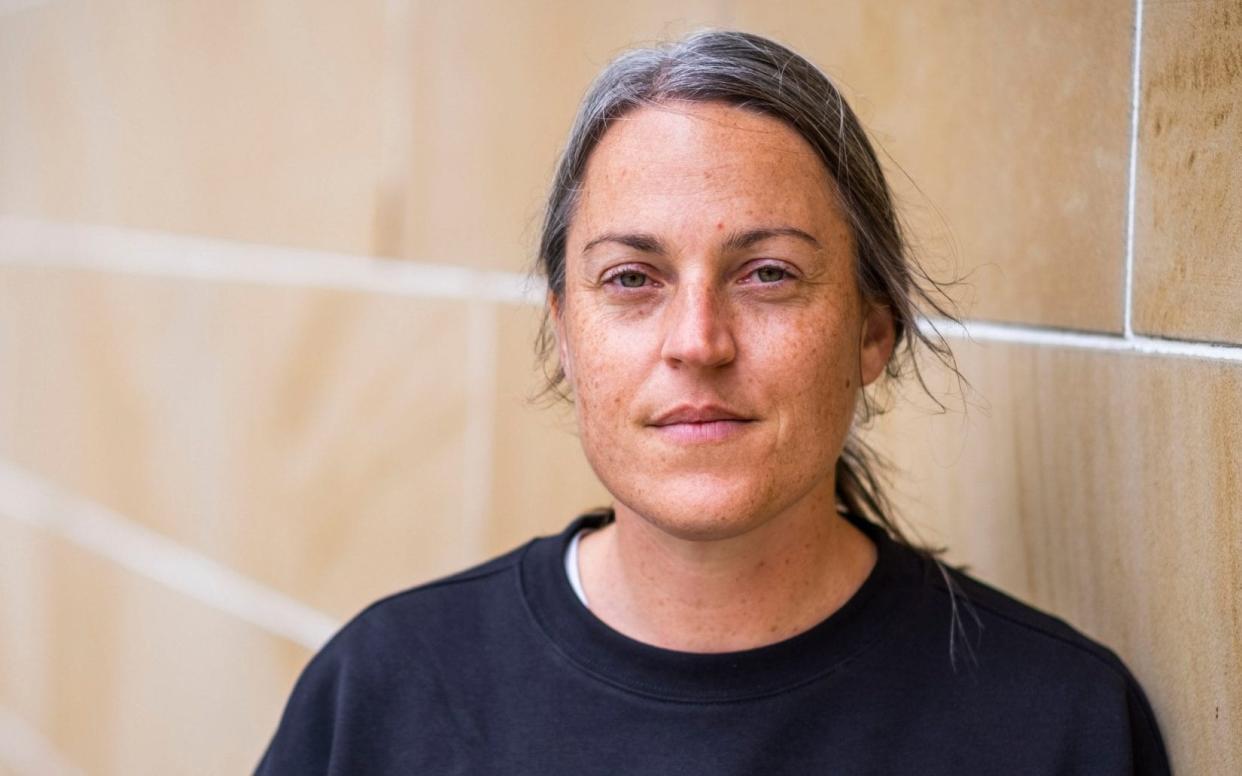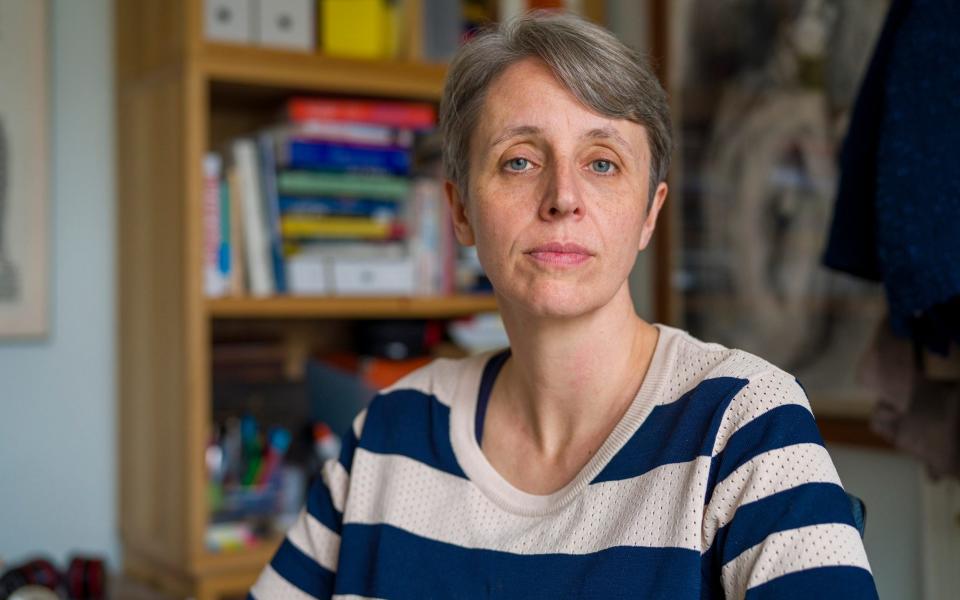‘The trans lobby tried to cancel my book – they don’t want people asking questions’

The Oxford University Press is an august institution that rarely attracts controversy. One new title, however, has caused a furore, with petitions circulating that question both the decision to publish and the author’s credentials. It has even been accused of endangering lives, as though the mere act of publishing a book some people imagine they won’t like could have fatal consequences.
Think I’m exaggerating? Then you haven’t seen the reaction to the publication of Gender-Critical Feminism by Dr Holly Lawford-Smith, the latest feminist to attract the ire of trans activists. Lawford-Smith is a cheerful academic, a New Zealander who laughs often, but you wouldn’t know it from the splenetic accusations hurled against her. According to her critics, this 39-year-old associate professor in political philosophy at the University of Melbourne has the “explicit objective of denying trans people the right to live freely or to exist at all”.
The accusations are all the more shocking because the signatories of both petitions claim connections with the Oxford University Press (OUP). One has been signed by people who say they are “members of the OUP USA Guild”, explicitly demanding that the press think again about publishing Lawford-Smith’s book. They claim that publication will “embolden and legitimise the views of transphobes and contribute to the harm that is perpetrated against the trans community globally”.
The other group describe themselves as “members of the international scholarly community” with links to the OUP as authors, editors, reviewers and translators. They object to just about everything Lawford-Smith has ever said or done, even characterising the purely descriptive title of her book as “an anti-trans dog whistle”. They show scant regard for editorial independence, suggesting that the OUP should “offset the harm” done by publishing the book by “soliciting and publishing trans-affirming scholarship by transgender authors”.
This is not Lawford-Smith’s first book for the OUP. Her research interests include collective action and she published Not In Their Name: Are Citizens Culpable For Their States’ Actions in 2019. She might well be described as an accidental philosopher, enrolling in lunchtime courses while she was studying fashion design. “I fell completely in love with philosophy,” she tells me. Her training is in moral and political philosophy, which means she’s an outsider to feminist philosophy, something she credits with providing “complete independence” from any kind of orthodoxy.
I ask her whether she expected a hostile reaction to Gender-Critical Feminism. “I suppose I did,” she says thoughtfully, “or at least I knew the process wouldn’t be straightforward. I think this was the OUP’s first experience of doing a book that would be very controversial. It went through a very stringent process.”

She’s pleased that the OUP hasn’t given in to pressure, describing their response as “brave”. David Clark, managing director of OUP academic publications, told critics that the book had been thoroughly reviewed by experts. “We are confident that Gender-Critical Feminism offers a serious and rigorous academic representation of this school of feminist thought,” he added.
A fellow philosopher, Kathleen Stock, offered a pithier response to calls for the book to be pulled. “I regret to inform you that the academic babies are at it again,” she wrote on Twitter. Stock’s solidarity with Lawford-Smith is unsurprising, given her own ordeal at the hands of gender extremists which led to her resigning her post at Sussex University last autumn. It is also striking that several of the female academics who have been harassed by trans activists – Stock, Lawford-Smith and the criminologist Jo Phoenix – are lesbians. So is Allison Bailey, the barrister who is currently taking her chambers and the LGBT organisation Stonewall to an employment tribunal.
All these women, most of them long-standing campaigners for gay and lesbian rights, have become familiar with the hyperbole of trans activists who characterise any words that divert from their dogma as an attempt to wipe out trans people. In what is becoming a pattern for women who argue back, Lawford-Smith says campus security at Melbourne University like to know her movements when a protest is planned. “I generally stay off campus on those days,” she adds, providing another illustration of the way the working lives of gender-critical academics have been affected by harassment from trans activists.
It was the harassment of Stock that first alerted Lawford-Smith to the threat posed to women – and the discipline of philosophy – by gender ideology. “They were treating debate on the issue as though it’s disgusting to ask certain questions,” she tells me. “My instinct was that’s really wrong. It’s really wrong how they were treating [Stock]. Philosophy is the discipline where you can ask anything. You put emotion to one side and discuss the arguments.”

As Lawford-Smith has discovered, putting emotion to one side is not an approach favoured by trans activists. Gender-critical feminism, which believes there are two biological sexes and questions the existence of “gender identity”, is anathema to them. Instead of engaging with the arguments, however, they smear authors like Lawford-Smith. People unfamiliar with their tactics may be astonished to see her accused of something close to genocide in one of the petitions. It accuses her of stirring up controversy “without being held accountable for very real and dangerous consequences of these discourses for entire demographics of human beings”.
Appalling though such accusations are, Lawford-Smith has been here before. “There’s been a series of things,” she says. “I think I’m used to them by now.” Last year she set up a website called ‘No Conflict, They Said’, which invited women to post their experiences of encountering men in women-only spaces such as changing rooms, toilets and prisons. The website suggested that governments around the world were passing laws that replace sex with gender identity, without collecting data about the impact on women.
“Women started telling their stories, but it became an issue with [Melbourne] university,” Lawford-Smith says. Some Australian states, including Victoria, have gone much further than the UK in legal terms, allowing individuals to change their sex by a simple declaration, a form of self-ID with few safeguards. Lawford-Smith doesn’t hold back about the changes: “They advance men’s interests at the expense of women’s rights. It’s incredible to see this from a government that presents itself as exceptionally progressive.” She describes politicians supporting self-ID in Victoria as “indoctrinated up to the eyeballs in gender identity ideology” and laments the fact they’ve met little opposition, something she blames on “the tepid ‘inclusivity-at-any-cost’ nature of mainstream feminism”.
The website prompted multiple complaints, accusing Lawford-Smith of violating university policy by referring to men who identify as women as men, even though the project had nothing to do with the institution. “I didn’t know how seriously to take it,” she recalls. “I did have some moments when I thought how will I pay the rent. I was stressed out, wondering if I should look for another academic job. I was a bit worn down, but I came through it.”
She is, as her views on self-ID suggest, unafraid of speaking her mind. She is forensic on the current hot potato of trans participation in sport which has hit the headlines since a male-bodied trans woman, Lia Thomas, began winning women’s swimming events in the US. Lawford-Smith tells me that science should settle the question, pointing out that neither surgery nor medical interventions change bone size. “I’m pretty militant on that topic,” she declares, although she thinks there are rare cases where a male child who has been on puberty blockers and hasn’t gone through puberty could compete fairly with women.
It would be a tiny minority, she points out, and adds that she opposes medical or surgical transition for under-18s. Her preferred solution is having a “protected” female category and an open category, which anyone could choose to compete in. Many people who are new to the issue will regard that as a fair outcome for everyone, but it’s the kind of common sense that gender extremists don’t want to hear.
Indeed the attack on Lawford-Smith’s book demonstrates their continuing reliance on smear tactics, but it’s hard to avoid the conclusion that they’ve chosen the wrong target on this occasion. Thanks to their singularly ill-judged efforts, Lawford-Smith is getting the kind of publicity few academic authors could ever hope for.


